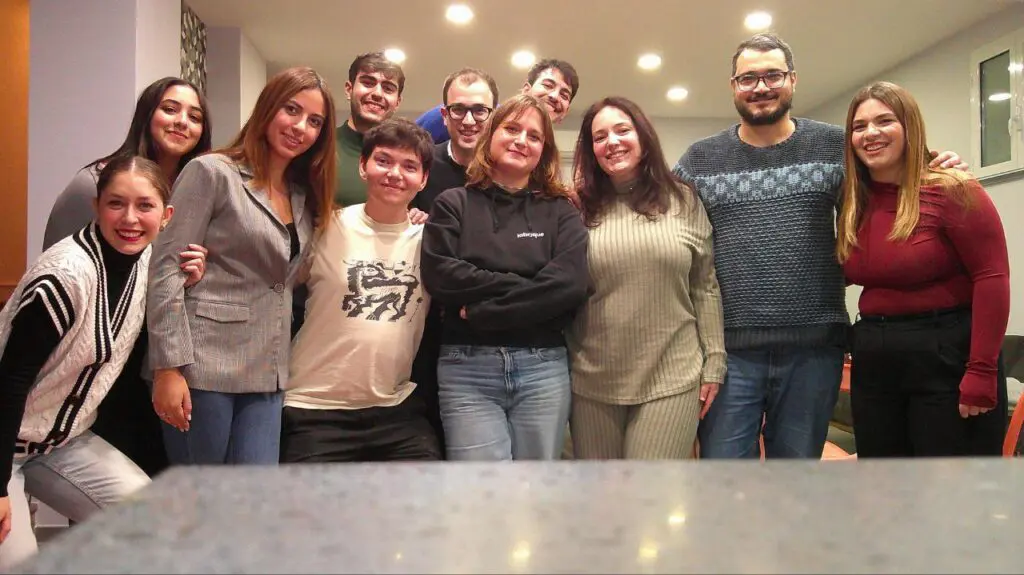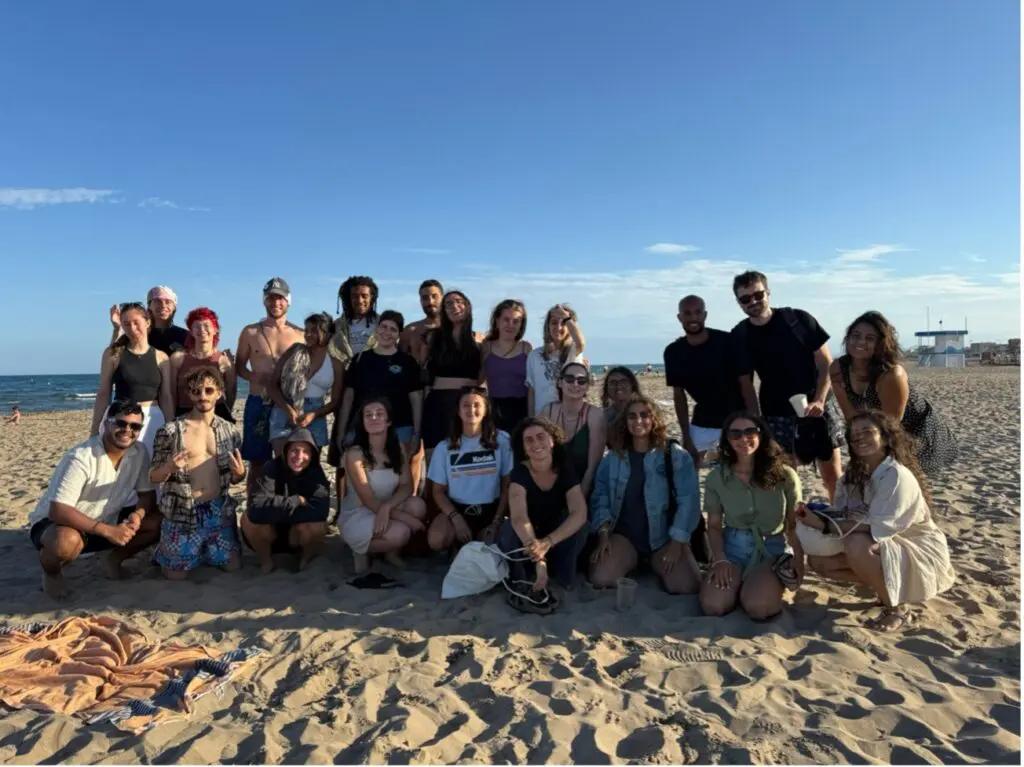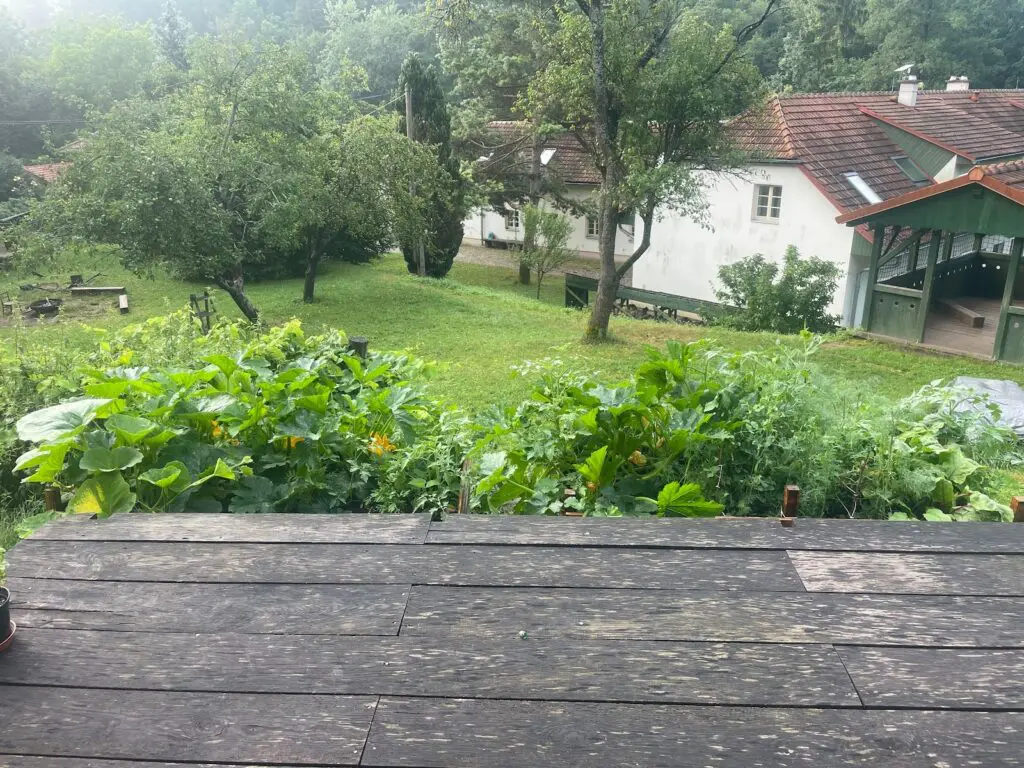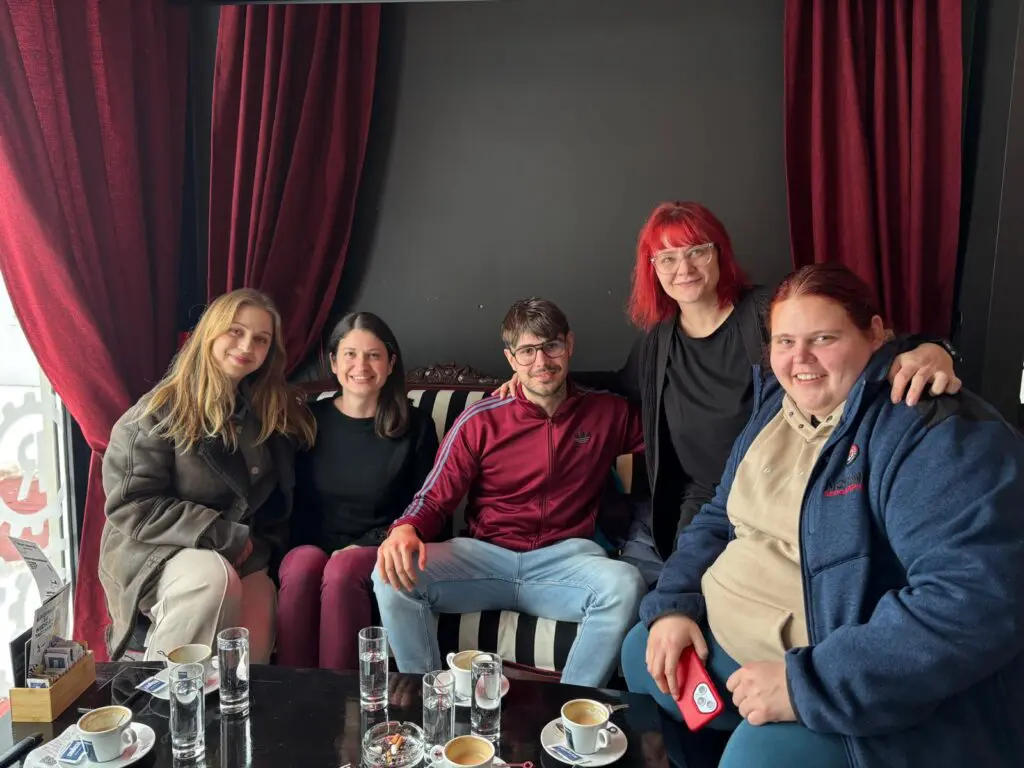CONDICIONES DEL VOLUNTARIO
Fechas
The long term project : Starts : mids of August/beginning of September due to registration in official schools.
Lectures start officially around the 15.09
You can’t register at distance
Minimum period : 6 months which can also be prolonged
Average time between 9-12 months because then the volunteer can participate in the 2 seminaries organized by us.
Condiciones voluntariado
What’s initial:
The work of Bruxelles is based on a mutual agreement between the volunteer and us : o On one hand, it offers the experience of life with people with learning disabilities, which includes :
to be a part of their lives
to ensure the needed assistance in some of their daily activities
o On the other hand, volunteers take part in the work of the organization by
sharing a part of their lives with the people with handicap (as we call them: the core members)
while ensuring the assistance they need in some of their daily activities
Principles :
In the community, we offer an experience which consists of different activities, yet the whole experience has a lot more to offer than simply these activities.
Life and activities at our organization derive from the fundamental values of us (ex. Charta, ID card?, identity and mission, mandate of us and organization International, etc…)
It is impossible to draw a firm line between the two aspects of life: activities and community life are equally important and sometimes overlapping as well.
By Belgian legal standards, a volunteer can’t “work” but can be trusted with “activities”. The time the volunteer spends with these “activities” can’t exceed the number of working hours of a full time worker.
Volunteers are expected to respect some further principles and values, concerning…
…the life in the community :
o Participation at meals, washing the dishes, enjoying community time (like the evenings in the homes, the “Bo Wen Son” event [particularly the one at the beginning of the year, when the volunteers introduce themselves and the end of the year, when the community thanks the work of the volunteers], celebrations, holidays [particularly the Saint Thursdays], birthdays, etc …), home meetings, weekends and/or holidays at the homes, spending time in the homes and sleeping there, taking care of the house they live in (general cleaning, maintenance and other eventual
housework, keeping their own room tidy), … ;
These are examples of the community life
… the activities :
o Assistance to the people with handicap in their daily routine and activities, should it be in their homes, in Grain (the activity center) or somewhere else on an individual basis. Also, preparation to the time spent together or team meetings can be considered as assistance activities for the people.
These principles apply to all of us. In practice, activities and venues (Grain, Branche, Cana, Ruche, Toit,…) can differ to meet the needs of the people of organisation – the core members and the assistants as well.
To put these principles in practice, a life in harmony is always of great importance for us. By that, we mean the life of the volunteers and professional assistants as well.
PM :
When assembling the schedule of the volunteers, we always harmonize it with the hours of their intensive French course (provided by us, 6 hours/week) dans le cadre des 37 h / semaine (en moyenne, sur [2 ou] 4 semaines). Idem à priori pour les formations (organisation ou
organisme d’envoi).
Nous ne décomptons pas de l’horaire initialement établi pour l’accompagnement (incontournable) des PA dans leurs activités, les heures de participation avec elles à des activités communautaires conviviales telles que les diverses célébrations communautaires p.ex.
As long as possible, we try to provide a free evening before the weekly day off of the volunteers and also a free morning afterwards.
At our homes the weekend starts Friday evening or Saturday morning, depending on how the given house organizes it.
Establishing two kind of schedules allows everyone to participate in all kinds of activities (when applying one schedule for 2 weeks, and the other for the next 2, starting over each month).
At the same time, keeping the professionals’ schedules allows everyone to have a chance to work together every now and then.
NB !!! :
The “ spirit” is the opposite of self-centered! On the contrary, it is all about growing by giving: we mutually learn and receive from each other.
Organización acogida voluntariado Bruselas
Diferencias entre voluntarios/as y personal contratado
Differentiating the roles of volunteers from the employees of organisation
Preamble :
1. The professionals employed by us are also “assistants”, even though their employment status is different.
2. The professionals, similarly to the volunteers have a role of authority towards the persons with handicap.
Division of roles between employees and volunteers:
1. In the homes :
a. The role of the employee responsible for education:
i. Developing and implementing the educational project with the support of the volunteers
ii. Responsible for administrative tasks, medical treatment of the persons with handicap, keeping in touch with the families/ legal representatives of the persons.
iii. Referent, guide and educator of the volunteer, who also supports him/her in building a relationship with the persons with disability.
b. The role of the volunteer :
i. Does not have background knowledge or professional skills
ii. Being present when needed while contributing to the daily life of the homes ( for example: wakeup, bedtime, activities, after 4 pm and during the
weekends, nights, hygene, meals)
iii. Participation in the life of the team
c. For certain tasks only the professional employees are responsible, namely:
i. Administration
ii. Preparation of medication
iii. Communication with the families / guardians, even though after a while some responsibilities can be handed over to the volunteers, under the
supervision of the professionals (for example : distributing the medication, being a referent to a person with handicap, etc.)
2. In the daytime activity center :
a. The role of the employee responsible for education:
i. Developing and implementing the educational project with the support of the volunteers
ii. Responsible for administrative tasks, medical treatment of the persons with handicap, keeping in touch with the families/ legal representatives of the persons.
iii. Referent, guide and educator of the volunteer, who also supports him/her in building a relationship with the persons with disability.
b. The role of the volunteer primarily consists of :
i. Accompany the persons with handicap during their everyday activities and participation in their community life in the activity center in support of the professionals.
ii. Ensuring the well-being of people (hygene, meals, ensure clothing adapted to the weather, psychological and physical health, etc …) in collaboration
with the professionals
iii. Ensuring the walking tours (TP = tournées pédestres) in pairs (2 assistants accompany the groups)
iv. Transfer the relevant information in between the homes, families, other sources…
v. Learning about people with disabilities
vi. Making sure, in cooperation with the professional team, that the daytime activity center works well.
vii. Making sure the team of volunteers work well together, participating at the team meetings and meeting of the educational team.
Generally the volunteers do not participate at the meetings of the professionals in the activity center, which are already rather crowded.
However, one (or two) volunteer(s) take turns participating in the professional team meetings. They play the role of spokesperson between the
professionals and the other volunteers, both ways.
viii. Additionally, the volunteers gather for team meetings on a regular basis with their RL, complemented by a psycho-pedagogue or the RV in
certain special cases.
3. Homes – Activity center:
a. Two different spaces with different functions and roles for professionals and for volunteers.
b. At the same time, these are two realities that complement each other, which reveals the necessity of searching for further overleaps between the volunteers working in the homes and those working in the daytime center.
c. It is important to treat these roles as different and complementary without comparing or opposing them.
Environmental Project
Papel de los voluntari@s en Bruselas
Equipo de trabajo
Listening and reassessment both are essential for everyone, professional or not.
With his houses’s team, each volunteer is responsible for functional organizational tasks as follows :
2-4 wakeups a week : waking up the people with handicap and taking care of housework
2-3 hours a day for specific tasks, for example : grocery shopping, taking the hosted people to the doctor, etc. The tasks are distributed conform to the capacities of the volunteers.
2-5 evening a week, starting from the afternoon snack (comment traduire GOUTER? ), helping the people with their baths/showers, cooking dinner, helping them to prepare for the night.
Working 2 weekends a month
Presence at the homes some nights a week
Participation in the activities of the homes, communal celebrations, the activities of the daily center.
Accompany the people with disabilities to additional programs or occupations, conform to your skills (work, medical appointment, free time activities, etc).
Taking care of general tasks to ensure the smooth functioning of the homes: welcoming the people, cooking, grocery shopping, baths and general hygiene of the people, getting there and coming back for the activity center, celebrations, keeping the rooms tidy.
Accompany the people during their activities in the daily center.
Participations at house meetings
With the daytime activity center’s team, every volunteer is responsible for functional organizational tasks as follows :
Accompany the people with disabilities in their individual and collective projects
Involvement in teaching and familiarizing with the teaching tools (eg presentation cards)
Punctuality, full presence during breaks and meal time
Discipline : in case of absence, let the managers know in advance
Participation at the team meetings and meeting organized for volunteers
Perfil voluntarios
To each volunteer working in the daytime center, it is obligatory to :
Participate at meetings with the manager of the daytime center
Participate at team meetings or meeting of the daytime center’s volunteers and the community meeting on Fridays
Participate at language classes
Working 2 days a month in the home to which the volunteer is designated to (based on the necessities of the home)
Participate at the community weekend, regional community day, the Christmas market and evaluations
To each volunteer working in the homes, it is obligatory to :
Have meetings with the home leaders and to take part in team meetings
Prepare activities, take part inhouse meetings, take language classes
Participate at the community weekend, regional community day, the Christmas market and evaluations
Remarks :
Under no circumstances shall the weekly number of the volunteers’ working hours exceed the working hours of an employee.
Each volunteer has to be provided 6 hours of French class a week, deducted from his/her working hours.
Occasionally it might happen that the language course and the working hours are not compatible. In these cases, the volunteer and the home leader try to find a solution together.
Summary :
Your project at our organisation is built :
– With you
– With the leader of the home / daytime center
– And in cooperation with the volunteer coordinator
Alojamiento y comida:
Cómo solicitar este voluntariado en Bruselas
Please download and fill this documents: https://www.dropbox.com/sh/cqd30j12iat0quv/AAASMnNxA1tknyAl63Y6emnOa?dl=0
Form hosting organisation (compulsory): https://docs.google.com/document/d/1Qfx8ZxT-armxGHyQao8S2WLOHPSfybG-P3He8nnxH0g/edit?usp=sharing
Send us an email with your CV, our form and letter of motivation to «Asociacionbb@gmail.com» with subject «EVS Brussels Jean. YOUR NAME.YOUR SURNAME»





Cristina
22 julio, 2018 at 9:02 pmCual es la edad limite para este voluntariado?
admin
23 julio, 2018 at 9:33 amSon 30 años máximo, gracias
Add a comment